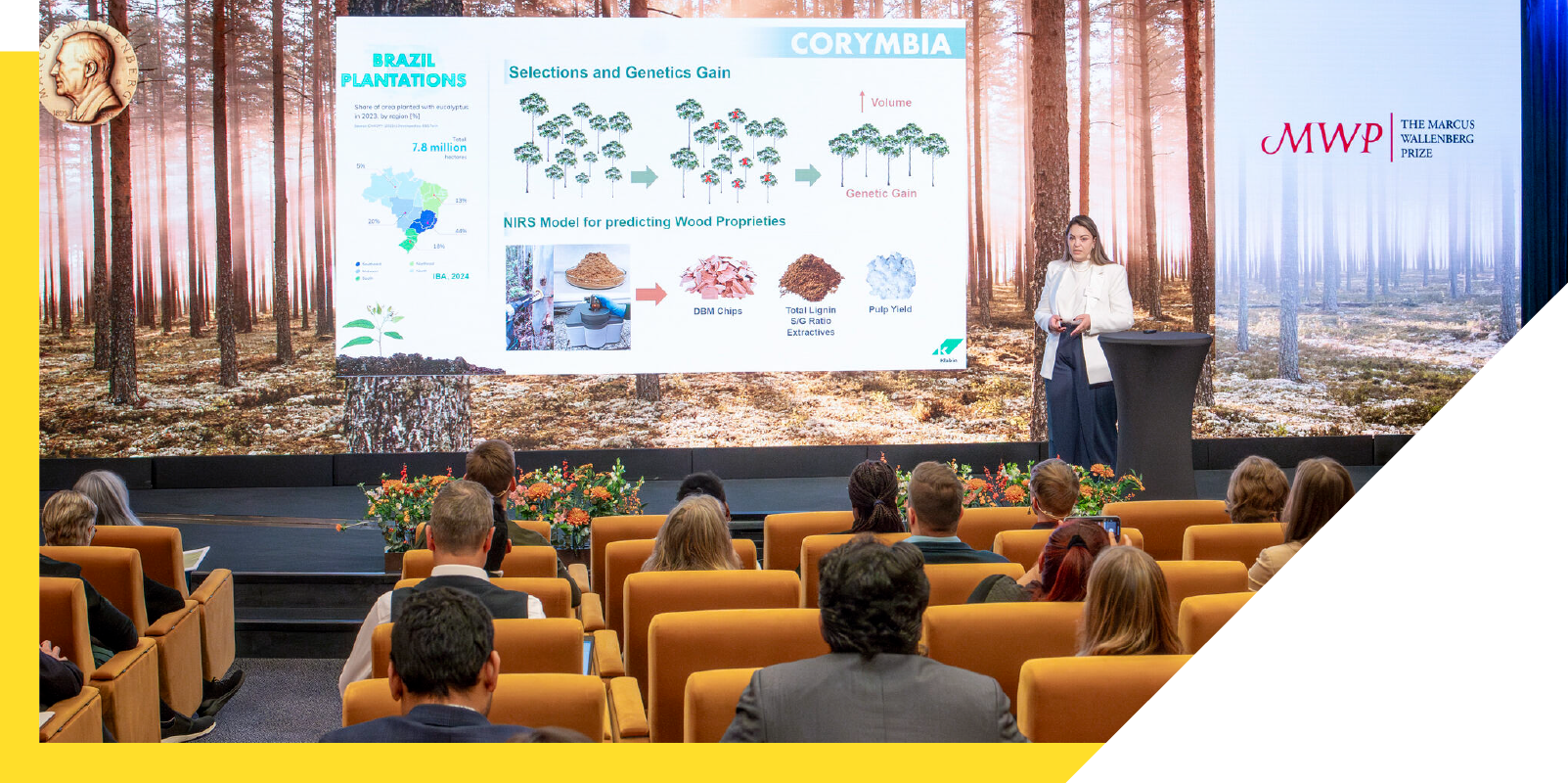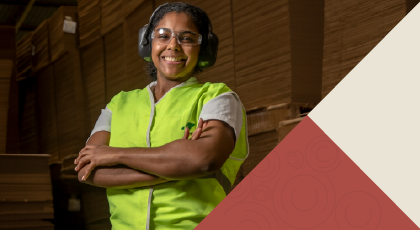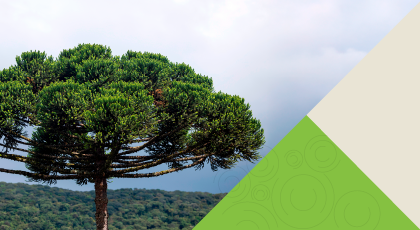Forest development
Research applied to operational activities
In 2024, Klabin’s forestry research and development was focused on ensuring that technologies developed in previous years are effectively applied to its operational activities, boosting both forest productivity and wood quality. An example of this successful strategy was the record-breaking planting program, using high-performance Klabin clones. Integration between forestry, R&D and procurement teams meant that 65% of the eucalyptus tree planting carried out in the year used genetic material (clones) developed in-house, surpassing the 2023 figure (46%). In 2025, the goal is even more ambitious: to achieve 100% Klabin clone adoption.
Greater productivity
Klabin clones have the potential to grow between 58 m³ and 60 m³ per hectare per year, while older materials produce between 50 m³ and 52 m³ per hectare.
New clones
Characterization and selection of new clones to support production strategies for new hybrids in the medium and long term, with a view to climate change adaptation.
Another highlight was increased production of superior pine families at Klabin’s nursery in Telêmaco Borba, Paraná. This achievement involved vegetative propagation, a technique for asexual plant reproduction. This result followed years of research to identify optimal genetic crosses within the Pinus genus and reproduce them on a commercial scale. The implementation of this project began in 2023, with the planting of parent trees in the nursery and the first harvest of shoots. Klabin has also strengthened its supply chain through strategic partnerships with leading nurseries, boosting production capacity. Together, these efforts have accelerated the planting of high-performance pine trees with greater productivity potential.
an in vitro cloning technique that enables the formation of embryos from somatic cells, that make up most of the plant’s body and are not reproductive (gametes) or germline cells. This technique makes it possible to produce a large number of embryos in a limited space.
Pine seedlings in Klabin's nursery.
Klabin has partnerships with the Sociedade de Investigações Florestais (Society for Forestry Research - SIF) and the Instituto de Pesquisas Florestais (Institute for Forestry Research and Studies - IPEF), the leading forestry research organizations in Brazil. Cooperation between academia and various companies is fundamental to business development in the sector. In addition to benchmarking between companies, collaborative projects allow experiments to be set up in various locations in Brazil, generating information on different eucalyptus and pine species throughout much of the country.
In 2024, a partnership between Klabin, SIF, IPEF, the Indústria Brasileira de Árvores (Brazilian Planted Forests Association - Ibá) and 10 other Brazilian companies made it possible to set up conservation areas for 34 eucalyptus species. The project's objective is to create a genetic conservation bank, ensuring the preservation of species' genetic variability over time and securing a source of genetic material for traits that may be essential in the future, even if they are not yet fully identified today. A good example of this is future climate variations, which may impact water-use efficiency, resistance to new pests and diseases, and even enable new uses for wood.
Attention to the impacts of climate change
Monitoring climate events and ways to mitigate them is an ongoing practice at Klabin. Through genetic improvement projects, superior genotypes are selected to ensure greater resistance and higher productivity. In parallel, silvicultural management projects apply best practices to support the development and optimization of resources allocated to these genetic materials. Climate risk management continuously evaluates all areas of the company, seeking strategies to mitigate potential impacts. Studies on the ecophysiological performance of clones assess their responses to adverse external conditions, such as excessive or insufficient rainfall, and indicate the best allocation of genetic materials to tolerate or withstand extreme events. Another ongoing initiative is the specific monitoring of new pests. For this, Klabin relies on a network of partners, which is essential for sharing information and promptly identifying potential threats both in Brazil and abroad.
Mindful of the climate emergency, in 2024 Klabin evaluated a new forest insurance methodology, taking aspects such as local temperature fluctuations into account.

Recognition
Klabin took part in the 2024 Marcus Wallenberg Prize, a Swedish award that recognizes technical development initiatives in the forestry industry. Letícia Miranda, a Klabin researcher, was among 30 young scientists from around the world selected to participate in the Marcus Wallenberg Prize Young Researchers Challenge’ Program. She presented her doctoral work on the Corymbia genus – a plant from the same family as eucalyptus.
Photo: Johan Gunséus
Innovation in the field
In 2024, after years of research and testing, Klabin, in partnership with the Swedish company Plantma Forestry and its Brazilian dealer, Dealer Timber, developed the Plant Max, an automatic planter capable of planting seedlings, irrigating, and fertilizing. Two planters have been acquired and will start operating in 2025.
The Company has also been improving the use of drones in planted forests to apply herbicides to sloping areas, as well as fertilizers and pesticides. Studies are being carried out to assess in which areas this technology can be used.
Partnerships
In 2024, Klabin maintained partnerships with these institutions:






